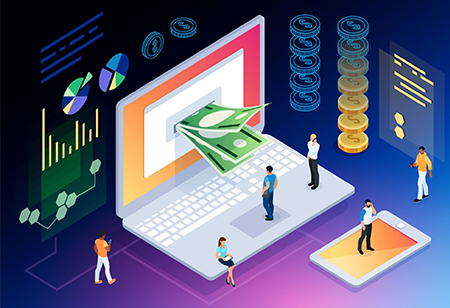COVID-19 Pandemic Will Fuel Innovation and How Can This Impact Your Business?
By Sthitaprajnya Panigrahi
 Engulfing the whole world with its horrific outbreak, COVID-19 or novel coronavirus has infected more than 2.5 million people globally. Causing deaths of thousands of patients, the pandemic outbreak has emerged as a worldwide challenge for every nation. Impelling the human civilization to stay confined within the indoors, the corporate world has come to a sudden halt resulting in the downfall of business and economy. This phenomenon has led many to believe that the worst is yet to come and the post-pandemic economic crisis is going to be severe. Affecting the world biologically, psychologically as well as economically, the coronavirus has caused some immediate short-term alterations in every sector starting from tech and non-tech firms and retail stores to supply chains and airlines.
Engulfing the whole world with its horrific outbreak, COVID-19 or novel coronavirus has infected more than 2.5 million people globally. Causing deaths of thousands of patients, the pandemic outbreak has emerged as a worldwide challenge for every nation. Impelling the human civilization to stay confined within the indoors, the corporate world has come to a sudden halt resulting in the downfall of business and economy. This phenomenon has led many to believe that the worst is yet to come and the post-pandemic economic crisis is going to be severe. Affecting the world biologically, psychologically as well as economically, the coronavirus has caused some immediate short-term alterations in every sector starting from tech and non-tech firms and retail stores to supply chains and airlines.
However, this may not be an enduring impact; as many industrial and economic experts believe that the world will soon gear up and resume its former industrial pace. According to many global leaders, this pandemic outbreak has helped them in achieving a more innovative approach in handling their business which they certainly would like to continue as a part of their management. Implementation of these modern yet effective approaches has scaled up their business in such a crucial time which has compelled the corporate leaders to make an affirmative decision over these pivotal business practices.
- Investment in Healthcare: Insurance companies like Digit Healthcare, Star Health, and ICICI Lombard have initiated coronavirus insurance plans to provide health covers in fighting the pandemic outbreak. Similarly, the National Health Service of the UK initiated a competition for startup companies to develop unique digital solutions for mental health and other social care requirements of its citizens. The pandemic outbreak outlined the importance of human lives and corporates are investing in healthcare services of the employees. Starting from regular check-ups to tracking mental health stability, this investment in the healthcare of employees can relieve the workforce from stress and depression caused by a heavy workload.
- More Flexible Supply Chain Model: The traditional supply chain model followed across the corporate sector was considered to be effective enough before getting knocked out by the COVID-19 outbreak. It has unveiled the need for a more flexible approach in the supply chain model, along with the appropriate coordination and distribution of the supplies across various geographical areas. To address this ongoing urge, the global leaders like Amazon and Alibaba are trying to implement more advanced technologies such as drones, self-driving cars, robotics, IoT and blockchain to create a more sophisticated mesh of supply chains.
- Virtual Workspace Management: Since the pandemic outbreak, human civilization has been forced to stay indoors causing the employees to function from their residences only. The companies have adopted a virtual working platform instead of the office and have been performing effectively. This has compelled the corporates to rethink their policy of following a strict physical workplace when they can very well function from their respective homes. This will not only save time, energy, and resources but may completely change the concept of a physical workplace in the up-coming future.
- Combination of Collective Intelligence: It is already clear that the COVID-19 has resulted in a disruption of the economy across the globe. And to face the challenges caused by the pandemic, there is a requirement of the collaboration of collective intelligence to operate across various sectors such as administration, marketing, retail, energy consumption, technology, and finance. No industry is completely safe from the impacts of this pandemic outbreak. However, by collaborating innovative ideas and creating refined solutions, the stability of enterprises can be safeguarded.
- Virtual Communication with Customers: At the current crucial scenario, where reaching out to the active customers can be a challenging job, there is a need for virtual platforms enabled by AI, AR, VR technologies to have effective interaction with the customers. By the deployment of these virtual platforms, to interconnect the customers with businesses can rebuild the trust of customers through virtual engagement. Although businesses are already familiar with pop-ups and chatbots for communicating with the customers, it is currently the need of the hour to redefine the area of smart interaction with customers through advanced technology-enabled platforms.




